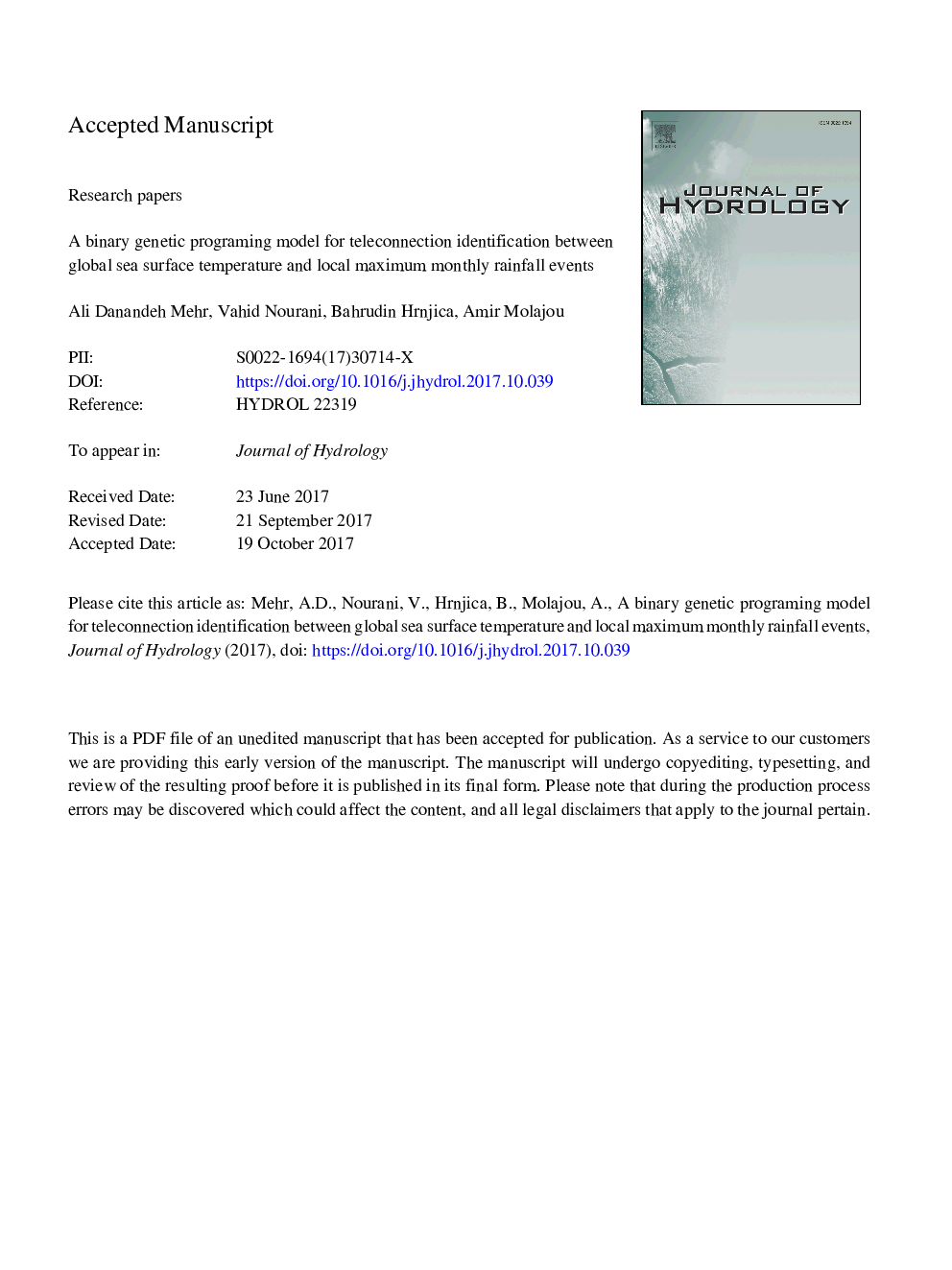| Article ID | Journal | Published Year | Pages | File Type |
|---|---|---|---|---|
| 8895265 | Journal of Hydrology | 2017 | 40 Pages |
Abstract
The effectiveness of genetic programming (GP) for solving regression problems in hydrology has been recognized in recent studies. However, its capability to solve classification problems has not been sufficiently explored so far. This study develops and applies a novel classification-forecasting model, namely Binary GP (BGP), for teleconnection studies between sea surface temperature (SST) variations and maximum monthly rainfall (MMR) events. The BGP integrates certain types of data pre-processing and post-processing methods with conventional GP engine to enhance its ability to solve both regression and classification problems simultaneously. The model was trained and tested using SST series of Black Sea, Mediterranean Sea, and Red Sea as potential predictors as well as classified MMR events at two locations in Iran as predictand. Skill of the model was measured in regard to different rainfall thresholds and SST lags and compared to that of the hybrid decision tree-association rule (DTAR) model available in the literature. The results indicated that the proposed model can identify potential teleconnection signals of surrounding seas beneficial to long-term forecasting of the occurrence of the classified MMR events.
Related Topics
Physical Sciences and Engineering
Earth and Planetary Sciences
Earth-Surface Processes
Authors
Ali Danandeh Mehr, Vahid Nourani, Bahrudin Hrnjica, Amir Molajou,
